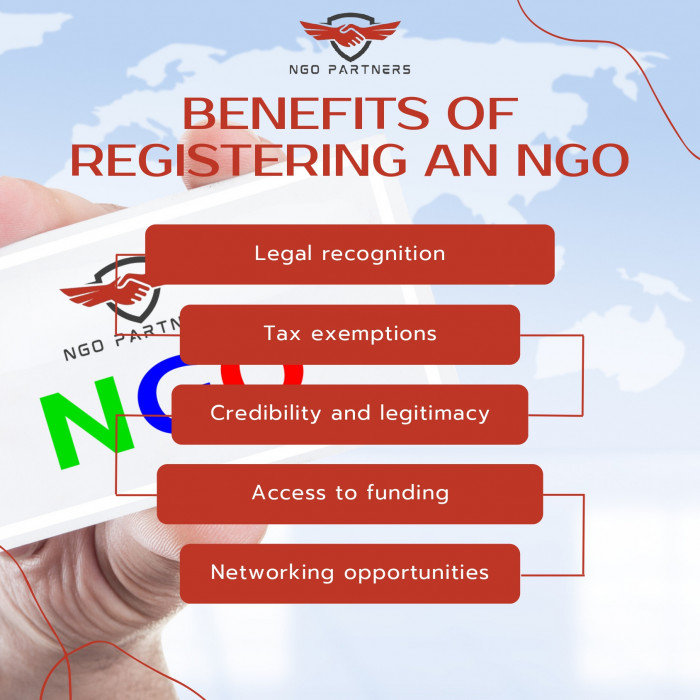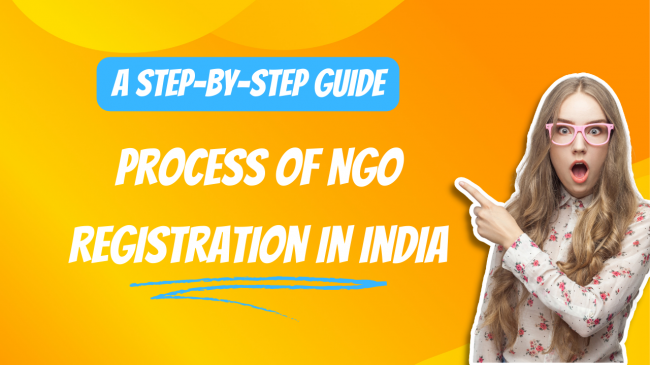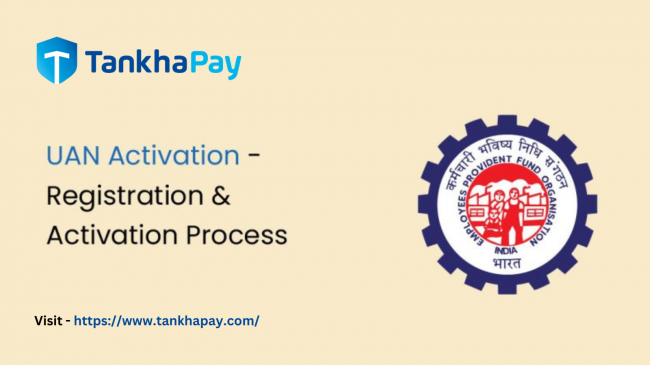Non-Governmental Organizations (NGOs) play a crucial role in India's social development and nation-building efforts. These organizations work towards various social causes and welfare activities, ranging from education and healthcare to environmental conservation and poverty alleviation. NGO registration is a crucial step for these organizations to gain legal recognition and operate effectively. In this blog post, we will explore the process of NGO registration in India, understanding the eligibility criteria, preparing the necessary documents, choosing the right legal structure, and navigating the online and offline registration processes.
Understanding the Eligibility Criteria
Before proceeding with NGO registration, it is essential to ensure that the organization meets the eligibility criteria set by the regulatory authorities. Some of the key requirements include having a non-profit objective and activities, fulfilling the minimum members and governing body requirements, ensuring no conflict of interest with the proposed name, and complying with local laws and regulations.
Preparing the Documents For Ngo Registration
The next step in the NGO registration process is to prepare the required documentation. This includes drafting the Memorandum of Association (MOA) and Articles of Association (AOA), obtaining a board resolution for NGO registration, obtaining affidavits from trustees and members, and providing proof of address and identity for trustees. Several other supporting documents may also be necessary, depending on the type of legal structure chosen.

Choosing the Right Legal Structure
NGOs in India can be registered under various legal structures, including Trusts, Societies, and Section 8 Companies. Each legal structure has its own set of characteristics, advantages, and tax implications. It is crucial to choose the one that aligns best with the organization's objectives and activities.
- Trust: This section covers the definition and characteristics of a trust, the process of creating a trust deed, the roles and responsibilities of trustees, and the tax implications associated with this legal structure.
- Society: This section delves into the definition and characteristics of a society, the process of forming a society memorandum, managing the governing body, and understanding the tax implications.
- Section 8 Company: Here, we will explore the definition and characteristics of a Section 8 Company. Additionally, we'll cover the preparation of the Memorandum and Articles of Association, the compliances under the Companies Act, 2013, and the tax benefits available.
Registering a Non-Governmental Organization (NGO) is a crucial step in establishing a legally recognized entity that can carry out social and charitable activities. Furthermore, the duration of the registration process may vary depending on the type of legal structure chosen for the NGO. Moreover, in India, NGOs can be registered as a Section 8 Company, Trust, or Society, and each type has its own specific registration timeline. Let's delve into the details of the registration timeline for different types of NGOs
Section 8 Company Registration:
A Section 8 Company is an organization that promotes charitable or social objectives. The registration process is streamlined and efficient, taking approximately 10 to 14 days. Following Steps Involved in Section 8 Company Registration:
- Obtain Digital Signature Certificates (DSC) and Director Identification Numbers (DIN) for the proposed directors.
- Reserve the desired name for the company through the Ministry of Corporate Affairs (MCA) RUN (Reserve Unique Name) service.
- Prepare the Memorandum of Association (MOA) and Articles of Association (AOA) with specific clauses related to the non-profit nature of the company.
- File the incorporation application and required documents with the Registrar of Companies (ROC) online.
- The ROC reviews the application, and if all requirements are met, they issue the Certificate of Incorporation, which officially registers the Section 8 Company.
Trust Incorporation:
A Trust is a common form of NGO that operates with the objective of promoting charitable activities. Trust registration involves certain legal formalities and may take a bit longer compared to a Section 8 Company. The approximate timeline for registering a Trust is around 20 days. The Steps Involved in Trust Incorporation:
- Choose a suitable name for the trust and verify its availability.
- Prepare the Trust Deed, which outlines the objectives, governing rules, and regulations of the trust.
- Print the Trust Deed on non-judicial stamp paper with appropriate denominations and get it signed by all trustees.
- Submit the Trust Deed, along with other required documents, to the local authorities or the office of the Charity Commissioner for registration.
- After verification of the documents and compliance with relevant regulations, the registration certificate is issued, confirming the establishment of the trust.
Society Registration:
A Society is an NGO that functions for the purpose of promoting social, cultural, educational, or charitable activities. The registration process for a Society may take a little longer compared to a Trust due to additional compliance requirements. The approximate timeline for society registration is around 25 days. Following Steps Involved in Society Registration:
- Select a unique name for the society and verify its availability.
- Prepare the Memorandum of Association (MOA) and the Rules and Regulations of the society.
- Gather signatures of the founding members on the MOA and Rules and Regulations.
- Submit the required documents, including the MOA and Rules and Regulations, to the Registrar of Societies or the office of the Charity Commissioner.
- The authorities review the documents and conduct any necessary verification.
- Upon successful completion of the verification process, the registration certificate is issued, thereby formally recognizing the society as an NGO.
It's important to note that these timelines are approximate and may vary based on factors such as the workload of government authorities, the completeness of documentation, and the efficiency of the registration process at the time of application.
Online NGO Registration Process In India
In recent years, the Indian government has made significant efforts to digitize processes, including NGO registration. We will look at the step-by-step online Ngo registration process, which involves registering on the NGO Darpan Portal, creating an account, filling the registration form, uploading the required documents, and tracking the application status.
Offline Registration Process
For those who prefer the traditional offline route, this section provides a detailed guide to the offline NGO registration process. It includes submitting the application to the appropriate Registrar of Societies or Charity Commissioner, the verification and approval process, and finally, obtaining the registration certificate.
Tax Exemptions and Compliance
NGOs meeting certain conditions can avail of tax exemptions under Section 80G and 12A of the Income Tax Act. Furthermore, in this section, we will explain the registration process for tax exemption. Moreover, we will emphasize the importance of filing annual returns and audited accounts and underscore the significance of maintaining proper records and documents. Additionally, NGOs receiving foreign contributions need to comply with the Foreign Contribution Regulation Act (FCRA).
Post-Registration Considerations
Once the NGO is registered, it faces various operational challenges. In this section, we will delve into several crucial aspects. Specifically, we will cover opening bank accounts and financial management, fundraising, and grant applications, hiring staff and volunteers, and effectively implementing projects and advocacy efforts.
Challenges & Common Mistakes
NGO registration can sometimes be a complex process, leading to delays or potential rejections. This section identifies common challenges and mistakes that NGOs may encounter during the registration process, such as delays, incomplete documentation, compliance issues, and addressing objections or rejections.
Conclusion
In conclusion, the process of NGO registration in India is a critical step for organizations that aim to contribute to social development and nation-building. By understanding the eligibility criteria, preparing the necessary documents, and choosing the right legal structure, NGOs can gain legal recognition and operate effectively. Additionally, navigating the online or offline registration processes facilitates access to various benefits, including tax exemptions and foreign contributions. Consequently, this enables NGOs to better serve their chosen causes and create a positive impact on society. As NGOs continue to play a vital role in addressing societal challenges, moreover, proper registration and compliance ensure their sustainability and credibility.
- What is an NGO?
- An NGO (Non-Governmental Organization) is a private organization working for society's welfare without governmental intervention. Moreover, NGOs function on a not-for-profit basis, addressing social, environmental, and economic issues.
- Why is NGO registration essential in India?
- NGO registration in India is essential for legal recognition and availing various government benefits, grants, and tax exemptions, registration provides credibility, accountability, and allows the NGO to operate transparently.
- What are the types of NGOs that can be registered in India?
- NGOs can register as Trusts, Societies, or Section 8 Companies. Specific acts govern Trusts and Societies, while the Companies Act, 2013, incorporates Section 8 Companies.
- What are the benefits of registering an NGO as a Trust?
- Trusts offer simplicity in registration, additionally, flexibility in operations, and are suitable for activities like education, healthcare, and charitable work.
- What advantages does registering an NGO as a Society offer?
Societies are ideal for cultural, scientific, and charitable purposes. Additionally, they allow for a democratic governing structure with a managing committee.
- Why consider registering an NGO as a Section 8 Company?
- Forming Section 8 Companies promote art, science, sports, education, research, and other charitable objectives. Additionally, they offer limited liability to their members.
- How do I choose a name for my NGO?
- NGO name must be unique, relevant, and follow guidelines set by MCA or Registrar of Societies.
- What is the process for obtaining Digital Signature Certificates (DSC) and Director Identification Number (DIN)?
- Directors apply for DSCs and DIN from MCA for online registration documents and identification.
- What documents are required for NGO registration?
- Required documents: MoA, Rules/Bylaws, director affidavits, and registered office address proof.
- How can I ensure the uniqueness of my NGO's name?
- Check name availability by submitting an application to ROC or Registrar of Societies.
- How do I submit the registration application for my NGO?
- NGO registration application filed with local registrar for Trusts, Registrar of Societies for Societies, and ROC for Section 8 Companies.
- How long does the NGO registration process take?
- Registration process takes 15-30 days, depending on document completeness and registrar verification.
- Is there a tax benefit available for NGOs in India?
- Yes, indeed, NGOs can apply for the 12A and 80G certificates to avail tax exemptions on their income. Consequently, this allows donors to claim tax deductions for their contributions.
- What are the post-registration compliance requirements for NGOs?
- NGOs must diligently maintain accounts and also file annual returns. Moreover, they are required to conduct audits and ensure transparency and accountability.
- Do I need legal assistance for NGO registration?
-Seek professional guidance to streamline NGO registration and ensure legal compliance.












